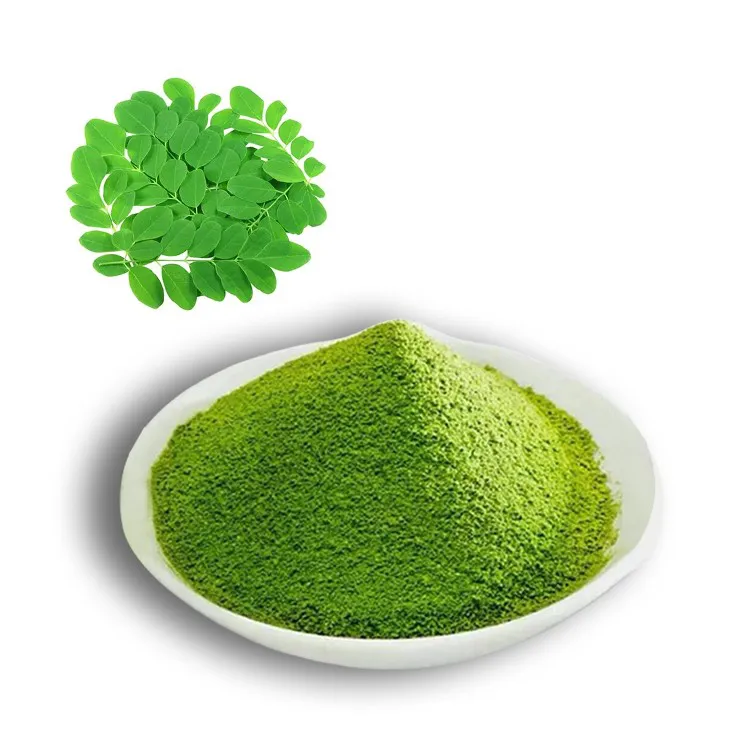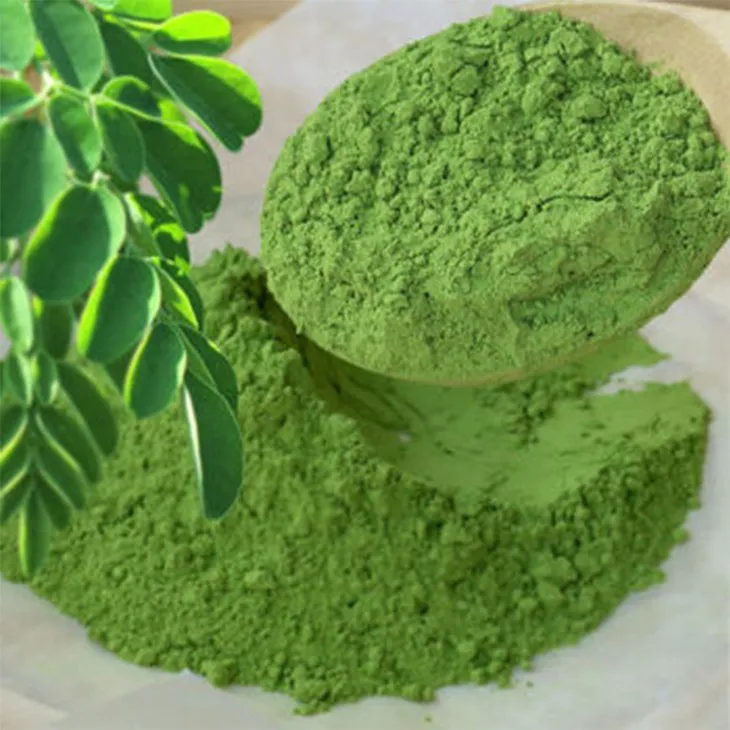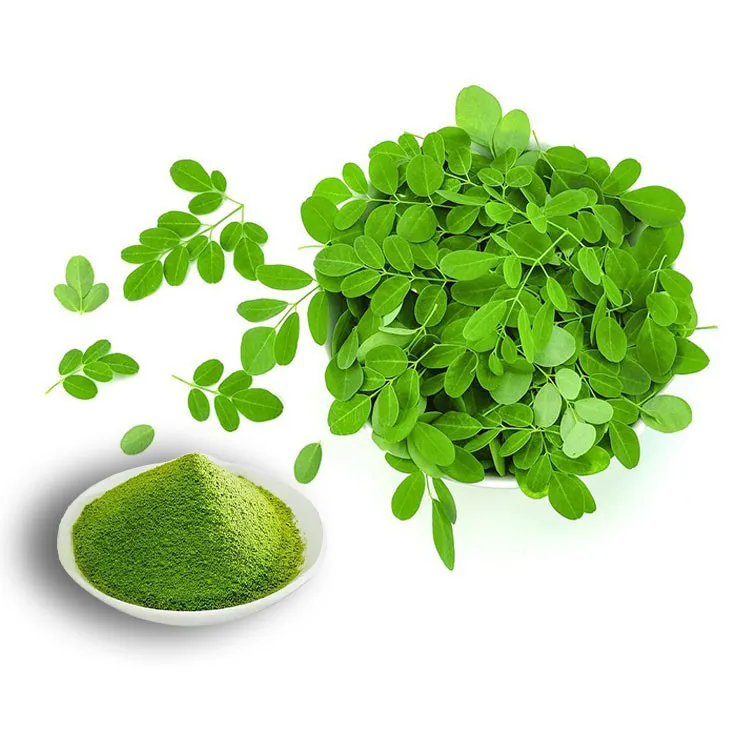- 0086-571-85302990
- sales@greenskybio.com
Moringa Powder: Should You Use It for Skin Care?
2024-11-12

Introduction
In the world of natural skincare, new ingredients are constantly emerging, and Moringa powder is one that has been gaining attention. Derived from the moringa tree, which is native to parts of Asia and Africa, this powder is being touted for its potential benefits in skincare. But before you jump on the bandwagon and start slathering it on your face, it's important to understand what it is, what it contains, and whether it's truly a good choice for your skin.

What is Moringa powder?
Moringa powder is made from the dried leaves of the moringa tree. This tree is often referred to as the "miracle tree" due to its numerous health - promoting properties. The powder is rich in nutrients such as vitamins ( including vitamin A, C, and E), minerals (like potassium, calcium, and iron), and amino acids. These nutrients play important roles in maintaining overall health, but their impact on the skin is what interests us in the context of skincare.

Natural Components of Moringa Powder and Their Interaction with Skin
Vitamins
Vitamin A: This vitamin is well - known for its role in skin health. It helps in cell turnover, which is crucial for maintaining a smooth and youthful complexion. By promoting the shedding of old, dead skin cells and the growth of new ones, it can improve skin texture and reduce the appearance of fine lines and wrinkles.
Vitamin C: A powerful antioxidant, vitamin C helps protect the skin from free - radical damage. Free radicals are unstable molecules that can cause oxidative stress in the skin, leading to premature aging, pigmentation problems, and a dull complexion. Vitamin C also plays a role in collagen synthesis. Collagen is a protein that gives the skin its structure and elasticity, so maintaining adequate levels is essential for firm, plump skin.
Vitamin E: Another antioxidant, vitamin E works in tandem with vitamin C to protect the skin. It helps prevent the breakdown of collagen and keeps the skin moisturized by reducing water loss from the skin cells.
Minerals
Potassium: This mineral is involved in maintaining the skin's moisture balance. It helps regulate the movement of water in and out of cells, ensuring that the skin remains hydrated without becoming overly oily or dry.
Calcium: Calcium is important for skin health as it is involved in cell - to - cell communication. It also plays a role in maintaining the integrity of the skin barrier, which helps protect the skin from external aggressors such as pollutants and bacteria.
Iron: Iron is necessary for the proper oxygenation of skin cells. When skin cells receive enough oxygen, they function optimally, which can result in a healthy, glowing complexion.
Amino Acids
Amino acids are the building blocks of proteins, and in the skin, they are essential for the production of collagen, elastin, and keratin. Collagen and elastin give the skin its firmness and elasticity, while keratin helps form a protective layer on the skin's surface. Moringa powder's amino acid content can potentially support the skin's natural protein production processes.

Advantages of Using Moringa Powder for Skin Care
Improving Skin Texture
The combination of vitamins, minerals, and amino acids in moringa powder can work together to improve skin texture. As mentioned earlier, vitamin A promotes cell turnover, which can lead to smoother skin. The amino acids support the production of collagen and elastin, which give the skin a more supple and firm feel. Additionally, the minerals in the powder help maintain the skin's moisture balance, preventing it from becoming rough or flaky.
Enhancing Complexion
The antioxidants in moringa powder, namely vitamins C and E, are great for enhancing the complexion. By protecting the skin from free - radical damage, they can prevent premature aging, such as the formation of wrinkles and age spots. Vitamin C also has skin - brightening properties, which can help reduce pigmentation issues and give the skin a more even - toned and radiant appearance.
Moisturizing and Hydrating
Potassium in moringa powder helps regulate the skin's moisture levels, keeping it hydrated. This natural moisturizing effect can be beneficial for all skin types, especially dry and dehydrated skin. A well - hydrated skin looks plump, healthy, and more youthful.
Anti - Inflammatory Properties
Moringa powder has been found to possess anti - inflammatory properties. This can be helpful for those with sensitive or acne - prone skin. Inflammation can exacerbate skin conditions such as acne, rosacea, and eczema. By reducing inflammation, moringa powder may help soothe irritated skin and promote a more balanced skin state.
Drawbacks of Using Moringa Powder for Skin Care
Limited Scientific Research
One of the main drawbacks of using moringa powder for skincare is the limited scientific research available. While there are anecdotal reports and some preliminary studies suggesting its benefits, more in - depth and conclusive research is needed. This lack of comprehensive scientific evidence means that we can't be entirely sure of the long - term effects and safety of using moringa powder on the skin.
Allergic Reactions
As with any new skincare ingredient, there is a risk of allergic reactions. Some people may be allergic to components in moringa powder, which could lead to skin irritation, redness, or swelling. It's always advisable to do a patch test before applying moringa powder - based products to a larger area of the skin.
Quality and Purity Concerns
The quality and purity of moringa powder can vary depending on the source and manufacturing processes. Contaminants or additives in low - quality products could potentially harm the skin rather than benefit it. It's important to choose a high - quality, pure moringa powder from a reputable source.
How to Use Moringa Powder in Skin Care
If you decide to give moringa powder a try for your skincare routine, there are several ways to use it:
- Face Masks: You can make a simple face mask by mixing moringa powder with water, honey, or yogurt. For example, combine 1 - 2 teaspoons of moringa powder with enough water to form a paste. Apply the paste to your face and leave it on for 10 - 15 minutes before rinsing off with warm water. Honey adds moisturizing properties, while yogurt can provide gentle exfoliation and additional probiotic benefits for the skin.
- Scrubs: Create a scrub by mixing moringa powder with a natural exfoliant like ground oatmeal or brown sugar. The moringa powder will add its nutrient - rich benefits, while the exfoliant will help slough off dead skin cells. Gently massage the scrub onto damp skin in circular motions, then rinse thoroughly.
- Toners: Make a toner by steeping moringa powder in boiled water and allowing it to cool. Strain the liquid and transfer it to a clean bottle. Use a cotton pad to apply the toner to your face after cleansing. This can help balance the skin's pH and provide a dose of the powder's beneficial components.
Conclusion
Moringa powder shows promise as a natural ingredient for skincare, with its potential to improve skin texture, enhance complexion, moisturize, and reduce inflammation. However, the limited scientific research, potential for allergic reactions, and quality concerns mean that it should be used with caution. If you're interested in incorporating moringa powder into your skincare routine, it's a good idea to start with small amounts, do a patch test, and choose high - quality products. As with any skincare ingredient, what works for one person may not work for another, so it's all about finding the right fit for your individual skin needs.
FAQ:
What are the main natural components in Moringa powder?
Moringa powder contains various natural components such as vitamins (like vitamin A, C, and E), minerals (such as calcium, potassium), amino acids, and antioxidants. These components play different roles in potentially affecting the skin. For example, vitamins can help in nourishing the skin, and antioxidants can fight against free radicals which are harmful to the skin.
How can Moringa powder improve skin texture?
The nutrients in Moringa powder, like amino acids, can help in the production of collagen. Collagen is essential for maintaining the elasticity and firmness of the skin. By promoting collagen production, it may lead to a smoother skin texture. Also, the antioxidants present can reduce inflammation in the skin which can also contribute to better skin texture.
What are the potential drawbacks of using Moringa powder for skin care?
One of the main drawbacks is the limited scientific research on its effectiveness specifically for skin care. While it has been used traditionally, there is not enough conclusive evidence to prove all of its claimed benefits for the skin. Also, some people may be allergic to certain components in Moringa powder, which could lead to skin irritation or other allergic reactions.
How does Moringa powder interact with different skin types?
For oily skin, the antioxidants in Moringa powder may help in controlling sebum production as they can regulate the skin's oil - balance. In dry skin, the vitamins and fatty acids in it can provide moisture and nourishment. However, for sensitive skin, due to the potential for allergic reactions as mentioned before, it should be used with caution. People with sensitive skin may need to do a patch test first to ensure there is no adverse reaction.
Can Moringa powder really improve complexion?
The vitamins and antioxidants in Moringa powder can potentially improve complexion. Vitamin C, for instance, can help in brightening the skin by reducing hyperpigmentation. The overall nourishment provided by the powder to the skin can also give a healthier - looking complexion. However, individual results may vary depending on factors such as diet, lifestyle, and overall skin health.
Related literature
- The Potential of Moringa oleifera in Cosmetics: A Review"
- "Moringa oleifera: A Multifunctional Tree with Skin - related Benefits"
- "Antioxidant and Skin - Nourishing Properties of Moringa - based Skincare Products"
- ▶ Hesperidin
- ▶ Citrus Bioflavonoids
- ▶ Plant Extract
- ▶ lycopene
- ▶ Diosmin
- ▶ Grape seed extract
- ▶ Sea buckthorn Juice Powder
- ▶ Fruit Juice Powder
- ▶ Hops Extract
- ▶ Artichoke Extract
- ▶ Mushroom extract
- ▶ Astaxanthin
- ▶ Green Tea Extract
- ▶ Curcumin
- ▶ Horse Chestnut Extract
- ▶ Other Product
- ▶ Boswellia Serrata Extract
- ▶ Resveratrol
- ▶ Marigold Extract
- ▶ Grape Leaf Extract
- ▶ New Product
- ▶ Aminolevulinic acid
- ▶ Cranberry Extract
- ▶ Red Yeast Rice
- ▶ Red Wine Extract
-
Baicalin
2024-11-12
-
Cassia Seed Extract
2024-11-12
-
Chia Seed Powder
2024-11-12
-
Alisma Extract
2024-11-12
-
Moringa powder
2024-11-12
-
Hawthorn powder
2024-11-12
-
Lotus leaf extract
2024-11-12
-
Rosemary extract
2024-11-12
-
Beta Carotene
2024-11-12
-
Mango flavored powder
2024-11-12




















